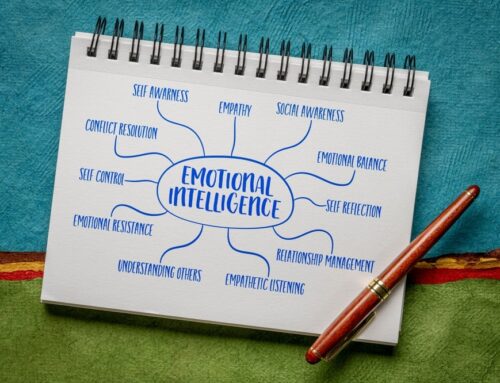
In a global workplace, diversity is one of our greatest strengths—but it also introduces new layers of complexity when it comes to conflict. What may seem like assertiveness in one culture might come across as aggressive in another. A direct communication style that works well in the U.S. might feel disrespectful to a team member from Japan. As teams become increasingly global, understanding how cultural norms shape conflict and communication is no longer optional—it’s essential.
In this post, we’ll explore how cross-cultural dynamics influence workplace conflict and offer strategies to help global teams build trust, avoid misinterpretation, and create healthy conflict resolution processes that honor diverse perspectives.
How Culture Shapes Conflict
Culture shapes how we give feedback, express disagreement, handle silence, and interpret tone. Here are a few cultural contrasts that often surface in team conflicts:
-
Direct vs. Indirect Communication: In cultures like Germany or the Netherlands, directness is often valued and expected. In contrast, cultures such as Japan, China, or many parts of Latin America may rely more on contextual or indirect communication, where tone, pauses, or body language carry deeper meaning.
-
Individualism vs. Collectivism: In the U.S. or Australia, individuals may speak up more readily for themselves. In collectivist cultures like Indonesia or India, prioritizing harmony and group cohesion can lead to conflict being avoided or addressed through a third party.
-
Power Distance: In high power-distance cultures (e.g., many Middle Eastern or Southeast Asian countries), it may be inappropriate to challenge a manager openly. In low power-distance cultures (e.g., Scandinavia), disagreement across levels is more accepted and even encouraged.
When these differences aren’t acknowledged, they can lead to frustration, misinterpretation, or the false perception that a colleague is being rude, unresponsive, or unengaged.
Practical Strategies for Global Teams
-
Create a Cultural Awareness Baseline
Offer team members training or conversation spaces that explore how different cultures approach conflict. Encourage curiosity rather than assumptions. Tools like Erin Meyer’s Culture Map or Hofstede’s Cultural Dimensions can help spark insight. -
Use Clear and Respectful Language
Even in English-speaking teams, idioms, sarcasm, or casual tones may be confusing or misread. Model direct yet warm communication, and clarify what tone and feedback style are appropriate in your team. -
Don’t Default to “One-Size-Fits-All” Conflict Resolution Models
What works in a U.S. conflict (e.g., a face-to-face confrontation) might not work for someone who finds direct confrontation disrespectful. Offer multiple channels for raising concerns—written, one-on-one, anonymous if needed. -
Develop Inclusive Team Protocols
Establish clear team norms that account for cultural differences. For example:
– Everyone gets a chance to speak in meetings.
– Feedback is offered constructively and not in front of others unless agreed upon.
– “Silence” is interpreted as reflection, not resistance. -
Use a Neutral Facilitator for Sensitive Conflicts
Especially if power dynamics or cultural barriers are in play, bringing in a neutral facilitator can help ensure all voices are heard fairly.
Real-World Case: U.S.–Japan Marketing Team
A U.S.-based marketing director was frustrated that her Japanese counterpart never voiced opinions in meetings. She interpreted the silence as disengagement. Meanwhile, her colleague felt uncomfortable interrupting or giving direct feedback in public. After a team training on cultural norms, they agreed to debrief one-on-one after meetings and give feedback in writing. Trust grew, and their collaboration flourished.
Final Thoughts
Conflict is inevitable in diverse teams—but with intention and cultural understanding, it can be a catalyst for growth and deeper connection. The goal isn’t to avoid conflict, but to create shared tools for navigating it with respect and empathy.
If your team is navigating complex interpersonal dynamics, we offer specialized conflict resolution training designed for multicultural and remote teams. Reach out to explore how we can help your organization communicate better across differences.

About the Author: Jeremy Pollack
Jeremy Pollack, Ph.D. is the founder of Defuse De-Escalation Training, a sister company of Pollack Peacebuilding Systems, the largest workplace conflict resolution training and consulting firm in North America. He actively participates in de-escalation training and consulting initiatives for a variety of industries, from Fortune 500 companies to well-known non-profits. Besides his Ph.D. in Psychology from Grand Canyon University, Jeremy holds a Master’s Degree in Negotiation, Conflict Resolution, and Peacebuilding (NCRP) from California State University, Dominguez Hills. He is also a member of several organizations focused on conflict resolution and peacebuilding, such as the Peaceful Leadership Institute, the Association for Conflict Resolution, and the Division 48 (Division of Peace Psychology) of the American Psychological Association. Jeremy also holds several certifications in the field of training and coaching: he is a Certified Organizational Development Coach (CODC™), a Certified Clinical Trauma Specialist-Individual (CCTS-I™), and an Associate Certified Coach (ACC) under the International Coaching Federation.








